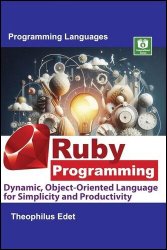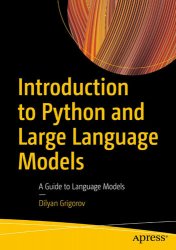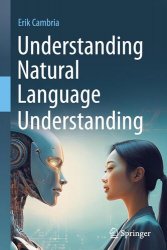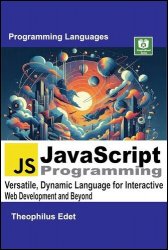- Добавил: literator
- Дата: 28-01-2025, 04:15
- Комментариев: 0
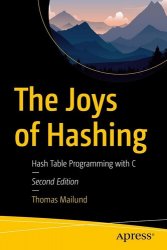 Название: The Joys of Hashing: Hash Table Programming with C, 2nd Edition
Название: The Joys of Hashing: Hash Table Programming with C, 2nd EditionАвтор: Thomas Mailund
Издательство: Apress
Год: 2024
Страниц: 225
Язык: английский
Формат: pdf (true), epub (true)
Размер: 10.6 MB
Build working implementations of hash tables, written in the C programming language. The new and revised Second Edition has been enhanced with simplified code and more comprehensive explanations, aimed at improving clarity and comprehension while exploiting the latest features in C programming. This book starts with simple first attempts devoid of collision resolution strategies. It then progresses through improvements and extensions illustrating different design ideas and approaches, followed by experiments to validate the choices. You will learn how hash tables, when implemented and used appropriately, are exceptionally efficient data structures for representing sets and lookup tables, providing low overhead, constant time, insertion, deletion, and lookup operations. This book is an introduction to the hash table data structure. When implemented and used appropriately, hash tables are exceptionally efficient data structures for representing sets and lookup tables. They provide constant time, low overhead, insertion, deletion, and lookup. This book assumes you are familiar with programming and the C programming language. The theoretical parts of the book also assume some familiarity with probability theory and algorithmic theory, but nothing beyond what you would learn in an introductory course. The Joys of Hashing walks you through the implementation of efficient hash tables and the pros and cons of different design choices when building tables. The source code used in the book is available on GitHub for your re-use and experiments.




